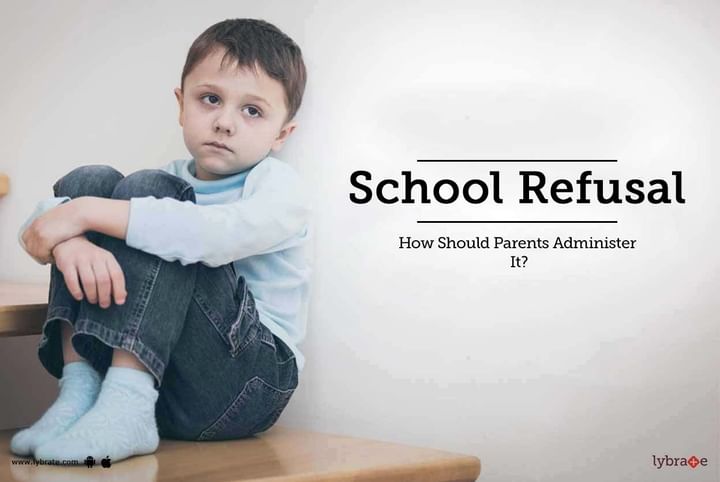School Refusal - How Should Parents Administer It?
Blessed are the parents whose children enjoy going to schools. Some parents have to sweat it out to convince and cajole their kids into going to schools. Every morning brings in a new struggle. You will often come across kids who hate going to schools. From complaining of a headache to stomach aches, they will try everything under the sun to give the school a miss. With time, however, things get under control, much to the parent's relief.
The situation gets dicey when children continue to panic, get stressed out at the mere thought of going to school (for a longer duration of time). With time, things get more and more complicated. A situation as critical as this is known as School Refusal Behavior. School refusal can affect children, adolescents, and even teenagers.
Factors that trigger school refusal behavior:
School refusal in children may be an amalgamation of many factors:
- In some children, the problem may be due to ADHD (Attention Deficit Hyperactivity Disorder). It is a common behavioral disorder that affects many children and even teenagers. In ADHD, children find it a herculean task to concentrate or to pay attention in class. Needless to say, this affects a child's overall performance in class. The fear of getting rebuked and punished (by teachers) may trigger school refusal in such children.
- Many parents set unrealistic goals for their children. They want their children to be the best. What they fail to realize is that in doing so, they end up suffocating the kids. In a few extreme cases, the pressure to excel in academics grips them with an unknown fear. They start avoiding classes. They get panic attacks at the mention of schools.
- There are some menaces which can make life miserable. Being bullied in school (by classmates or seniors) is one such issue. As time progresses, the situation may get so unbearable that the child at the receiving end starts showing signs of school refusal.
- Children with undiagnosed and untreated depression, stress, and anxiety may show signs of school refusal. Such kids prefer to stay within themselves. They don't enjoy social gatherings or interacting with people much.
- Some children want to be with their parents all the time. Going to school would mean being away from parents. Thus, they look for excuses to avoid schools.
Symptoms:
The characteristic of school refusal behavior include
- Irritability, inflexibility, and anger.
- Nausea, headache, stomach ache, vomiting.
- Diarrhea
- The affected child may show signs of separation anxiety.
- Sleep disturbance.
- Tantrums in the morning.
Diagnosis and Treatment:
School refusal needs to be dealt with as early as possible since the longer the child stays away from school, the more difficult it will become for him/her to return to school.
- The Screen for Child Anxiety Related Emotional Disorders (SCARED).
- The Children's Manifest Anxiety Scale.
- The Child Behavior Checklist.
Parents, physician, and school authorities should together chalk out a plan to deal with the situation.
- Cognitive therapy can produce fruitful results.
- Any student subjected to bullying should bring it to the notice of their parents and teachers.
- Parents should not pressurize their child to overperform.
- Consult an expert physician if your child shows any signs of stress and anxiety.



+1.svg)
